Stomach Cancer - Traditional Chinese Medicine Treatment
Information provided/updated by:
Professor Xu Kai,
Clinical Professor of Chinese Medicine, School of Chinese Medicine, Baptist University
Introduction:
In this article, Professor Xu Kai introduces us to how traditional Chinese medicine treats stomach cancer.
A. Overview (including the use and differences of organs, systems, traditional Chinese medicine and Western medicine terminology)
B. Etiology/Symptoms/Diagnosis
C. Treatment Methods
A. Overview (including the use and differences of organs, systems, traditional Chinese medicine and Western medicine terminology)
Stomach cancer is a digestive system cancer that occurs in the epithelial cells of the stomach mucosa. It can occur at any age, but it is most common between the ages of 50 and 60.
In Hong Kong, the incidence and mortality rates are both ranked sixth. Stomach cancer is more common in men than in women.
Traditional Chinese medicine has classified stomach cancer as: aggregation-accumulation, stomach duct pain and stomach reflux, etc. In 1997, the National Administration of Traditional Chinese Medicine issued the "National Standard for the Diagnosis of Diseases in Clinical Practice of Traditional Chinese Medicine", and traditional Chinese medicine also diagnosed it as "stomach cancer".
B. Etiology/Symptoms/Diagnosis
Western medicine believes that: age over forty, eating too salty or often eating pickled food, high-fat diet or eating less vegetables and fiber, family inheritance, Helicobacter pylori infection, lack of vitamin B12 leading to anemia, stomach surgery, chronic stomach diseases (such as lack of stomach acid, atrophic gastritis, gastric ulcer, polyp, etc.) as well as smoking and excessive drinking are risk factors for stomach cancer.
Traditional Chinese medicine believes that: the main cause of stomach cancer is emotional disorders and irregular diet, and it is also related to innate constitution and chronic diseases and injuries. Emotional disorders refer to long-term anxiety, anger, and frustration; long-term irregular or unclean diet, such as overeating, liking snacks, liking fatty and greasy food, fried and greasy food, barbecue and pickled food, liking sweet food, salty food and long-term consumption of leftovers.
Stomach cancer is also related to smoking, drinking, constitution, innate constitution, labor injury and old diseases of the stomach. The above many factors long-term repeated injury to the stomach qi, abnormal stomach qi transformation, can lead to the internal generation of phlegm, dampness turbidity and static blood and other pathogens, and can lead to the aggregation of stomach essence and qi, mutation into cancer. The internally generated pathogens and cancer aggregation, gradually increasing, forming stomach cancer.
Over 70% of early gastric cancer has no obvious symptoms, or there are symptoms such as upper abdominal bloating and dull pain, acid reflux, belching, nausea, and loss of appetite. Advanced gastric cancer has symptoms such as upper abdominal bloating, anorexia, nausea, vomiting, diarrhea, weight loss, fatigue or anemia. The pain of gastric cancer is often gnawing and has no obvious relationship with eating; for ulcerative gastric cancer, the pain can be relieved after eating. Cardia cancer has discomfort or pain under the xiphoid process, accompanied by a sense of obstruction when eating or difficulty swallowing. The symptoms of abdominal distension and abdominal pain appear later in gastric body cancer; for gastric antrum lesser curvature cancer, the symptoms of upper abdominal pain appear earlier; when the tumor involves the pylorus, it can cause symptoms of pyloric obstruction such as nausea, vomiting and abdominal distension. Gastric cancer can also have occult blood in the stool or black stool.
C. Treatment methods
Western medicine treats stage 0 to I gastric cancer mainly with surgery or endoscopic treatment; for stages II and III, surgery is combined with preoperative or/and postoperative adjuvant chemotherapy, and intraperitoneal chemotherapy can also be performed during surgery; for stage IV, chemotherapy is the main treatment, supplemented by radiotherapy when necessary, and targeted therapy or immunotherapy can be used if indicated.
Traditional Chinese medicine treatment of gastric cancer is applicable for postoperative prevention of recurrence, and for reducing toxicity and enhancing efficacy during and after chemotherapy and targeted drug treatment.
For advanced gastric cancer that is not suitable for surgery, chemotherapy and targeted drug treatment, traditional Chinese medicine treatment can be the main treatment.
The treatment of gastric cancer with traditional Chinese medicine follows the holistic view and syndrome differentiation view, adheres to the disease mechanism; the basic treatment principle is to reinforce the healthy qi and eliminate the pathogenic factors; tonifying qi and replenishing blood, regulating the function of the viscera and bowels, are the methods of reinforcing the healthy qi; regulating qi movement, resolving phlegm and softening hardness, activating blood and dispersing masses, and attacking toxins and reducing cancer, are the methods of attacking the pathogenic factors. Late-stage gastric cancer with slow progression can also be given traditional Chinese medicine palliative treatment, such as Chinese medicinal pill preparation, powder preparation, acupuncture, external application, psychotherapy and qigong therapy, etc.
(Note: Some information sources: Hong Kong Department of Health website, National Standard Information Public Service Platform and Asian Cancer Research Foundation Limited website.)
(September 2021)




